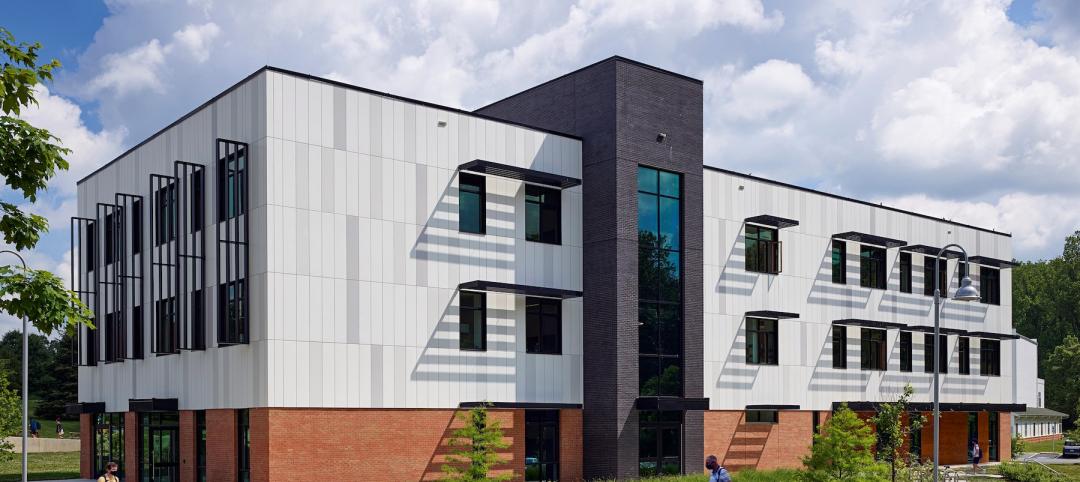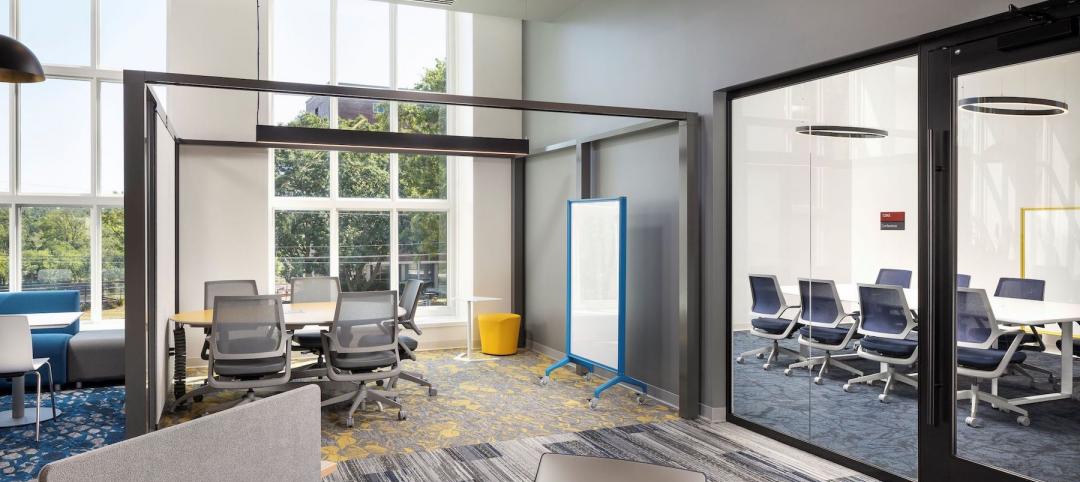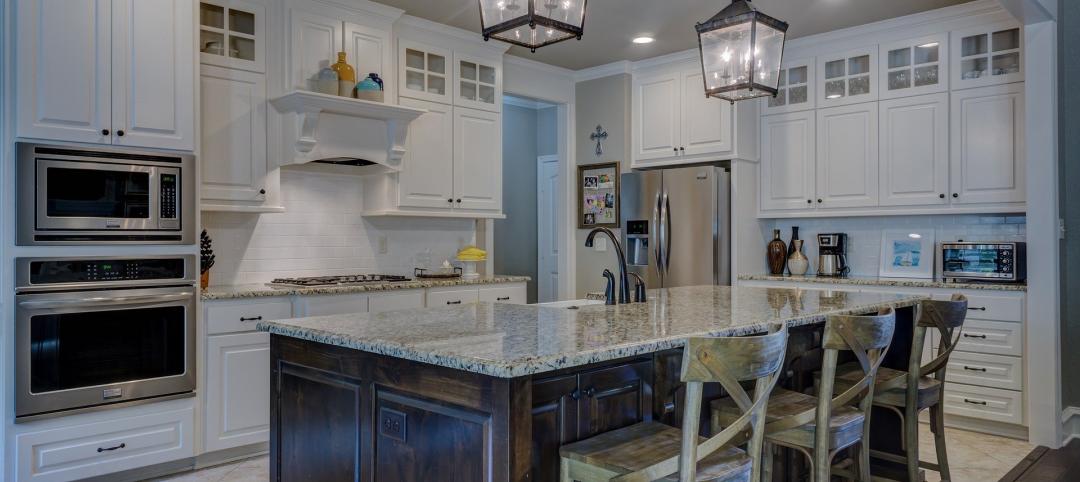This week, the Green Building Advisory Committee established by the General Services Administration (GSA), officially recommended to GSA that the LEED green building certification system be used for all GSA buildings as the best measure of building efficiency. The committee also conveyed that LEED should be the primary way to show how agency buildings use energy and water and that LEED standards are the most conducive to meet the Energy Independence and Security Act.
The Green Building Advisory Committee has evaluated more than 160 tools and systems since it began in 2011, and in February, GSA released a request for information (RFI) that publicly lauded the value of green building rating systems like LEED and asked for additional input into important issues that could help GSA accelerate and improve its green building work.
“GSA has been a leader in energy and sustainability, and we are thrilled to see the leaders in the public and private sectors continue to recommend LEED as the best choice for GSA to maintain its leadership status while improving sustainability, reducing energy and saving money for its buildings,” said Roger Platt, senior vice president of Global Policy & Law, USGBC. “Consensus-based and market-driven, LEED has been and continues to be invaluable to thousands of building professionals and remains the best option for the GSA and any governmental agency looking to save taxpayer dollars and increase energy efficiency.”
According to an article released this week by Federal News Radio, GSA received more than 400 comments from 162 stakeholders from all facets of the building and academic industries as well as local federal and local government agencies. The full list of comments will be released later this spring, but the recommendation to use LEED comes from a study of more than 160 tools and standards, which found only three of them addressed the entire building system.
“Every single time green building and LEED have been evaluated by our most prestigious institutions, like the National Academy of Sciences, the National Research Council and the National Laboratories, the practice or green building and LEED certification has been shown to save taxpayer dollars and increase energy efficiency,” continued Platt. “Lawmakers should see these repeated conclusions and continue supporting public sector use of LEED.”
A study done by The Pacific Northwest National Laboratory (PNNL) found that GSA LEED certified buildings used 25 percent less energy than the national average and cost 19 percent less to operate. GSA’s application of LEED has helped in the agency’s building efficiency efforts, and there are now more than 4,000 LEED certified government projects with another 8,000 in the pipeline as registered projects. A recent report from GSA shows the agency has successfully reduced its energy use by almost 20 percent since 2003 and water use by almost 15 percent since 2007.
In addition, in a letter to GSA in July of 2012, 1,260 companies from the green building industry opposed deviating from LEED in federal facilities because such a change would add cost to the building and leasing process across the building industry.
To see why LEED is the only rating system diverse and dynamic enough to continue to drive market transformation, check out our latest infographic that shows LEED in motion.
About LEED
As the most widely recognized and widely used green building program across the globe, LEED is transforming buildings, homes and communities in all 50 states and 135 countries. LEED guides the design, construction, operations and maintenance of nearly 50,000 projects worldwide, comprising 9.3 billion square feet of commercial and institutional construction space, and nearly 117,000 additional residential units. By using less energy, LEED-certified spaces save money for families, businesses and taxpayers; reduce carbon emissions; and contribute to a healthier environment for residents, workers and the larger community. Learn more at usgbc.org/leed.
About the U.S. Green Building Council
The U.S. Green Building Council (USGBC) is committed to a prosperous and sustainable future through cost-efficient and energy-saving green buildings. USGBC works toward its mission of market transformation through its LEED green building program, robust educational offerings, a nationwide network of chapters and affiliates, the annual Greenbuild International Conference & Expo, and advocacy in support of public policy that encourages and enables green buildings and communities. For more information, visit usgbc.org.
Related Stories
Codes and Standards | May 16, 2022
AIA releases Justice in the Built Environment guide
The American Institute of Architects (AIA) recently published a new supplementary edition of the Guides for Equitable Practice, titled “Justice in the Built Environment.”
K-12 Schools | May 16, 2022
A Quaker high school in Maryland is the first in the U.S. to get WELL Gold certification
Designed by Stantec, a Quaker high school is the first in the US to receive WELL Gold certification, which recognizes a commitment to occupants’ health and well-being.
Building Team | May 13, 2022
Glass penthouses rise above Toronto’s tree line
In midtown Toronto, the nine-story midrise building Leaside Common has released its Penthouse Collection: two-floor penthouses that take inspiration from Philip Johnson’s Glass House in Connecticut.
Market Data | May 12, 2022
Monthly construction input prices increase in April
Construction input prices increased 0.8% in April compared to the previous month, according to an Associated Builders and Contractors analysis of U.S. Bureau of Labor Statistics’ Producer Price Index data released today.
School Construction | May 11, 2022
New Digital Learning Commons at Rutgers supports doctoral programs in over 16 disciplines
The new Digital Learning Commons at the Rutgers University Archibald S. Alexander Library provides students in over 16 courses of study and four professional schools with spacious collaborative and study space.
Esports Arenas | May 11, 2022
Design firm Populous partners with esports company on digital art NFT collection
Design firm Populous and multidiscipline esports organization Kansas City Pioneers have partnered on a five-part NFT collection.
Multifamily Housing | May 11, 2022
Kitchen+Bath AMENITIES – Take the survey for a chance at a $50 gift card
MULTIFAMILY DESIGN + CONSTRUCTION is conducting a research study on the use of kitchen and bath products in the $106 billion multifamily construction sector.
Building Team | May 11, 2022
Miami to get its first supertall building
After completing its first supertall building, 111 W 57th Street in New York, developer PMG is now preparing for the groundbreaking of the first supertall in Miami: Waldorf Astoria Miami.
Sponsored | BD+C University Course | May 10, 2022
Designing smarter places of learning
This course explains the how structural steel building systems are suited to construction of education facilities.
Performing Arts Centers | May 10, 2022
A historic performance space is transformed to reinforce a campus’ Arts District
Connecticut College’s Athey Center for Performance and Research at Palmer Auditorium balances the old and new.

















